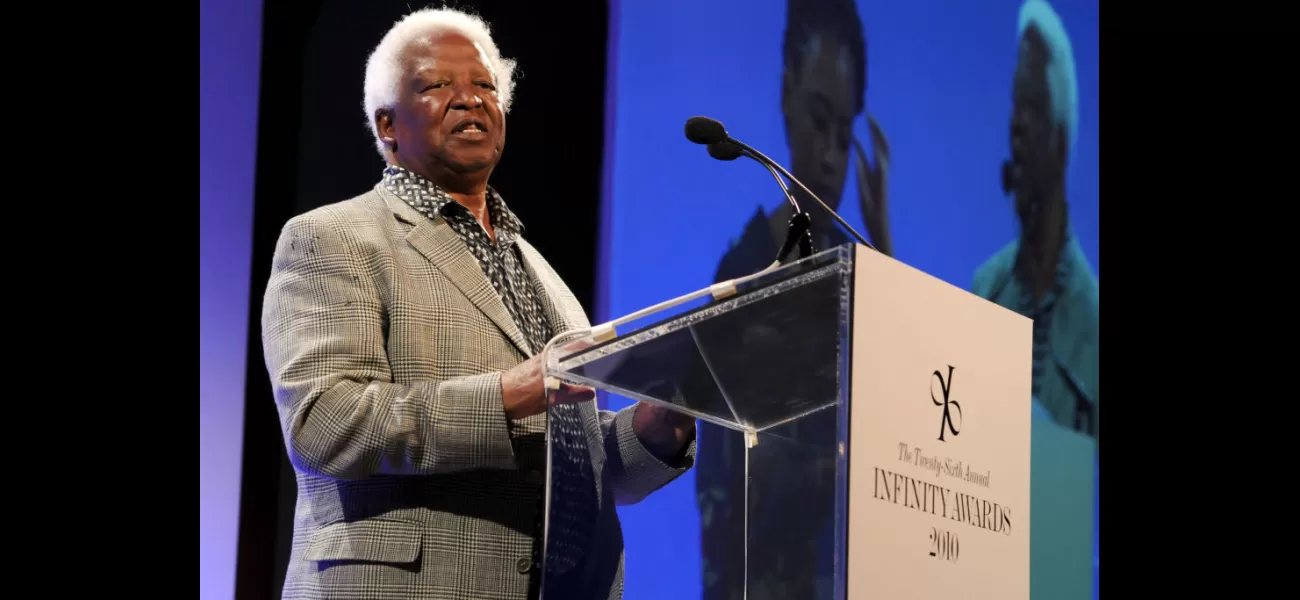Peter Magubane, a legendary South African photojournalist who documented the brutality of apartheid, has died at age 91.
Magubane a "legendary photojournalist" acclaimed by peers & honored by SA gov for critical role in documenting anti-apartheid fight.
January 7th 2024.

Renowned South African photographer Peter Magubane has passed away at the age of 91. His daughter, Fikile Magubane, announced the news on Jan. 1, with no further details given.
Magubane was known for his iconic works that shed light on the violence and injustice of apartheid and captured pivotal moments in South Africa’s struggle for democracy. He was celebrated as a ‘legendary photojournalist’ by his peers and recognized by the South African government for his pivotal role in documenting the fight against apartheid.
Born in 1932 in Johannesburg, Magubane’s journey into photography began with a Kodak Box Brownie gifted to him by his father. However, the oppressive rules of apartheid restricted the opportunities for Black photographers, forcing Magubane to learn the craft through unconventional means. He eventually found employment at the Drum magazine, where he was a tea boy and later a driver. After hours, he would take photographs around Johannesburg and develop them in the Drum darkroom.
In 1955, Magubane received his first significant assignment, covering a convention of the anti-apartheid African National Congress. Following this, the ANC was banned in South Africa, and Nelson Mandela was incarcerated in 1962. Magubane’s career took him from Drum to the Rand Daily Mail newspaper, and he also contributed to international publications such as Time magazine and Sports Illustrated.
Magubane’s award-winning photographs of the Sharpeville massacre in 1960 and the Soweto uprising of 1976 brought international attention to the tragedies. His iconic works documented the horrific violence and atrocities of the apartheid regime. He also captured poignant images of everyday life under apartheid, emphasizing the absurdity of racial segregation.
Because of his work, Magubane became a target of the apartheid government and was repeatedly arrested and imprisoned. Despite this, he continued fighting against apartheid with his camera.
In 1990, Magubane’s career came full circle when he was appointed as Nelson Mandela’s official photographer after Mandela’s release from prison. He continued to document Mandela’s journey until the historic all-race elections in 1994.
Throughout his illustrious career, Peter Magubane’s legacy extended beyond documenting violence. His iconic works brought global attention to the injustices of apartheid and his photographs remain timeless reminders of the fight for democracy in South Africa.
Magubane was known for his iconic works that shed light on the violence and injustice of apartheid and captured pivotal moments in South Africa’s struggle for democracy. He was celebrated as a ‘legendary photojournalist’ by his peers and recognized by the South African government for his pivotal role in documenting the fight against apartheid.
Born in 1932 in Johannesburg, Magubane’s journey into photography began with a Kodak Box Brownie gifted to him by his father. However, the oppressive rules of apartheid restricted the opportunities for Black photographers, forcing Magubane to learn the craft through unconventional means. He eventually found employment at the Drum magazine, where he was a tea boy and later a driver. After hours, he would take photographs around Johannesburg and develop them in the Drum darkroom.
In 1955, Magubane received his first significant assignment, covering a convention of the anti-apartheid African National Congress. Following this, the ANC was banned in South Africa, and Nelson Mandela was incarcerated in 1962. Magubane’s career took him from Drum to the Rand Daily Mail newspaper, and he also contributed to international publications such as Time magazine and Sports Illustrated.
Magubane’s award-winning photographs of the Sharpeville massacre in 1960 and the Soweto uprising of 1976 brought international attention to the tragedies. His iconic works documented the horrific violence and atrocities of the apartheid regime. He also captured poignant images of everyday life under apartheid, emphasizing the absurdity of racial segregation.
Because of his work, Magubane became a target of the apartheid government and was repeatedly arrested and imprisoned. Despite this, he continued fighting against apartheid with his camera.
In 1990, Magubane’s career came full circle when he was appointed as Nelson Mandela’s official photographer after Mandela’s release from prison. He continued to document Mandela’s journey until the historic all-race elections in 1994.
Throughout his illustrious career, Peter Magubane’s legacy extended beyond documenting violence. His iconic works brought global attention to the injustices of apartheid and his photographs remain timeless reminders of the fight for democracy in South Africa.
[This article has been trending online recently and has been generated with AI. Your feed is customized.]
[Generative AI is experimental.]
0
0
Submit Comment





